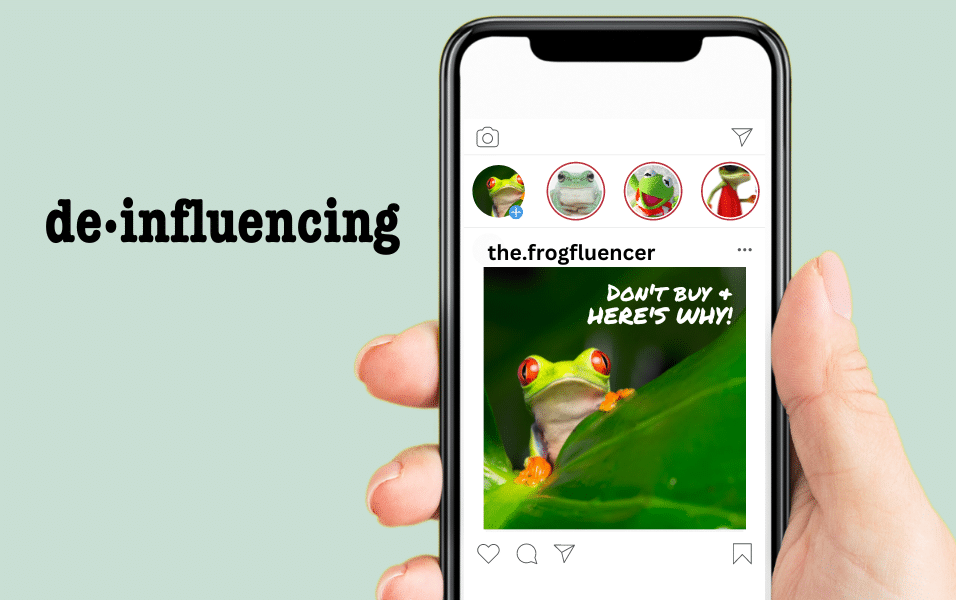One of the latest trends in social media is not about trying to persuade viewers to buy items; instead, it is doing the exact opposite. It even has a name – de-influencing. Whereas the influencer market informs people about the latest trends and shows them products to buy, some influencers, known as de-influencers, are doing their best to reduce overconsumption.
De-influencers are taking it upon themselves to promote a more sustainable lifestyle and encourage their followers to buy fewer, better-quality items. Some share their experiences with second-hand and vintage items and ways to get creative with what they already own. De-influencers encourage their viewers to exercise caution and make more deliberate choices by demonstrating that owning less stuff does not necessarily imply a lack of flair or originality. Additionally, they are also teaching their followers how to live more sustainably.
What exactly is de-influencing, and is it more than just a trend?
It’s no secret that the hashtag #deinfluencing has been viewed millions of times on TikTok alone. This is perfectly timed to appeal to people who are concerned about the current economic climate of inflation and rising living costs. Many people use TikTok to learn more about specific products and watch consumer reviews, making the platform a powerful force in customer decision-making. And as we mentioned in a previous blog post, TikTok can be a powerful platform for businesses looking to reach a younger, highly engaged audience.
De-influencing has sparked a broader discussion of how popular products may not necessarily be the best, and some content creators are outwardly questioning the necessity of certain purchases. This reflects a growing recognition of the impact of social media on our constant consumption habits. It’s fair to say that this significant trend is helping people focus on their purchasing habits while businesses are reconsidering the authenticity of their marketing methods.
How could de-influencing impact businesses?
While de-influencers are gaining prominence, it doesn’t necessarily mean that businesses should abandon their influencer marketing plans altogether. In fact, it could be an opportunity for organizations to re-evaluate their brand strategy and focus on promoting authenticity. Businesses could reduce the risk of becoming the target of de-influencers by presenting their brand honestly and avoiding false claims.
Small businesses, in particular, may find that traditional influencer marketing tactics are not as effective due to the growing demand for authentic interactions between customers and brands. Customers increasingly want to see real people using and endorsing products. By building genuine connections with their followers, small businesses can set up trust and loyalty that can lead to sustained success.
Over to you
De-influencing is a growing trend that is putting the traditional approach to influencer marketing to the test. De-influencers promote a more sustainable lifestyle and encourage their followers to make more informed purchasing decisions. Overall, de-influencing appears to be more than just a fad. Instead, it could be the start of a movement that has the potential to significantly influence how organizations and customers approach purchasing and marketing strategies.
Written by: Jennifer Hanford, MYOB Blogger

